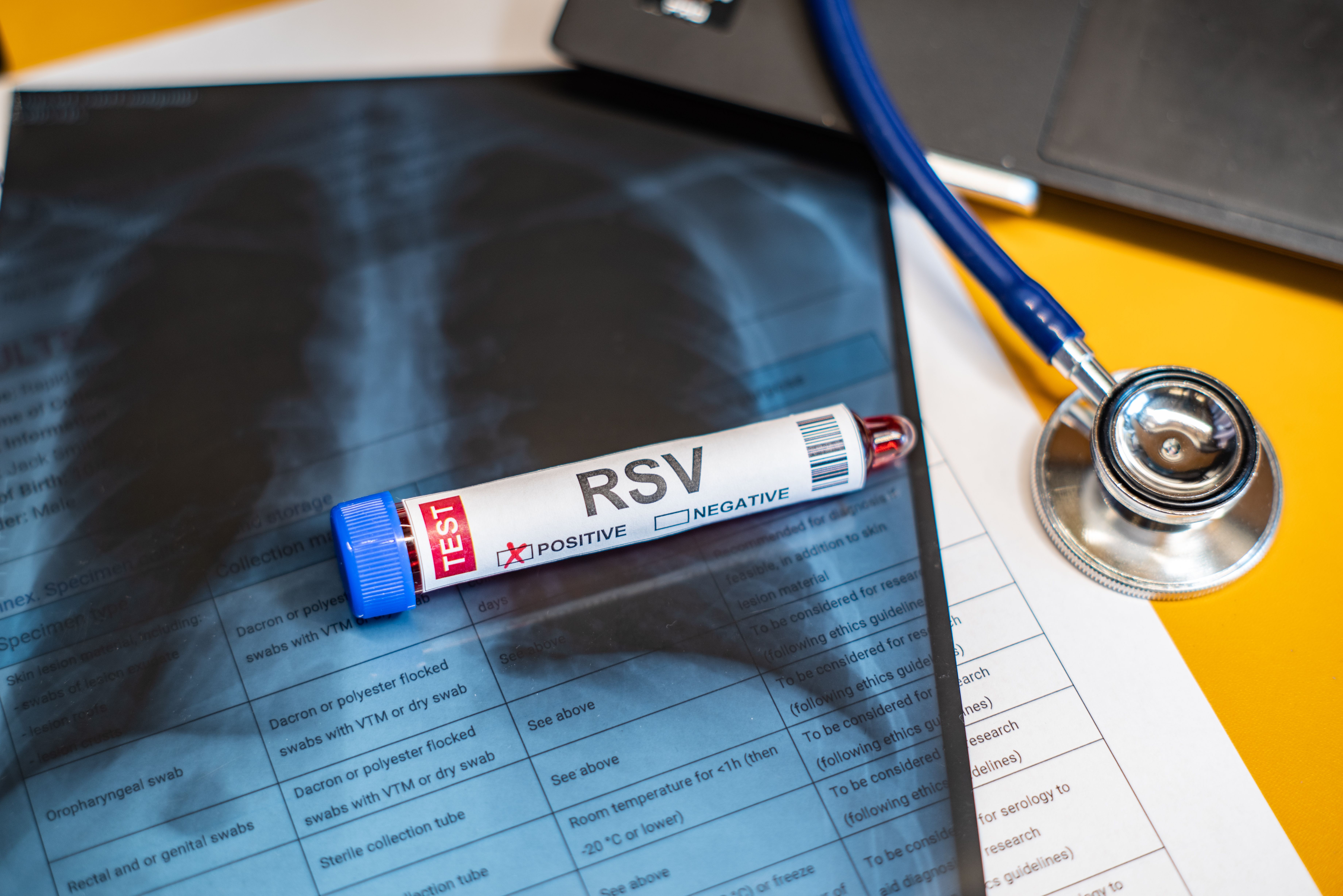- Center on Health Equity & Access
- Clinical
- Health Care Cost
- Health Care Delivery
- Insurance
- Policy
- Technology
- Value-Based Care
New RSV Vaccine Is Likely Cost-Effective for Older Adults, Study Finds
Respiratory syncytial virus (RSV) vaccination in adults aged 60 years and older may be cost-effective in preventing illness, hospitalizations, lost quality of life, and deaths, according to one study.
The new respiratory syncytial virus (RSV) vaccines recommended for individuals aged 60 years and older may provide individual and societal cost-savings benefits, a study suggests.1

"We view this as a pivotal study that highlights the potential of RSV vaccination to make significant public health and economic impacts for older adults," David Hutton, PhD, corresponding author of the study and professor of health management and policy and global public health at the University of Michigan’s School of Public Health, said in a statement.
In this study published in Vaccine, the researchers created a decision-analytical model of RSV infection to simulate the effects of a single dose of the RSV vaccine in this vulnerable patient population.2
On June 26, 2024, the CDC’s Advisory Committee on Immunization Practices (ACIP) updated its recommendations that all adults aged 75 years and older, and adults aged 60 to 74 years who are at increased risk for severe RSV disease should receive a single dose of the RSV vaccine (Arexvy [GSK], Abrysvo [Pfizer], or mResvia [Moderna]).3
RSV results in 60,000 to 160,000 hospitalizations and 6,000 to 10,000 deaths of adults aged 67 years and older each year, according to the CDC.1
"As RSV continues to pose a serious threat to individuals in this age group, the goal is for these findings to provide timely insights for health care decision-makers and policymakers," said Hutton.
Data from published literature, FDA documents, epidemiological databases, and manufacturer data were searched to create a decision-analytical model of RSV over a 2-year timeframe.2
The researchers evaluated the cost-effectiveness of the RSV vaccine among patients aged 60 years and older and recorded RSV-associated health care utilization, including outpatient appointments, emergency department visits, inpatient hospital stays, and RSV deaths.1 Additionally, the researchers analyzed quality-adjusted life-years lost (QALY), as well as societal costs that come with contracting RSV.
Because indirect effects of vaccination, such as prevention of RSV transmission, were not considered, incremental cost-effectiveness ratios (ICERs) were invariant to vaccine uptake.2
The societal cost per QALY saved from RSV vaccination was found to be dependent on age group and type of vaccine. Among adults aged 60 years and older, the societal cost per QALY saved was $196,842 for GSK’s Arexvy and $178,557 for Pfizer’s Abrysvo.1
For adults aged 65 years and older, the cost was $162,138 for GSK and $146,543 for Pfizer. For adults between ages 60 and 64 years, the cost saved was notably higher at $385,829 for GSK and $331,486 for Pfizer.
Moreover, vaccine efficacy, incidence of RSV hospitalization, and vaccine cost were found to have the greatest impact on cost per QALY.2
However, the researchers acknowledged some limitations. First, the model evaluated the general US population stratified only by age and not by other RSV disease risk factors. Second, the study did not include the indirect effects of vaccination, which may improve cost-effectiveness. Lastly, due to limited epidemiologic data, the study did not account for the potential vaccine impact on long-term RSV consequences, non-medically attended RSV illness, or out-of-hospital RSV-associated deaths.
Despite these limitations, the researchers believe that RSV vaccination might be cost-effective for adults aged 60 years and older, especially among those of more advanced age.1
"We look forward to continuing working with [the] CDC to determine the best ways to use our health resources to prevent respiratory disease," said Hutton.
References
1. New RSV vaccine for older adults can result in individual and societal cost savings, benefits. New release. University of Michigan. September 5, 2024. Accessed September 17, 2024. https://www.eurekalert.org/news-releases/1056995
2. Hutton DW, Prosser LA, Rose AM, et al. Cost-effectiveness of vaccinating adults aged 60 years and older against respiratory syncytial virus. Vaccine. 2024;42(24):126294. doi:10.1016/j.vaccine.2024.126294
3. Use of respiratory syncytial virus vaccines in adults aged ≥60 years: updated recommendations of the Advisory Committee on Immunization Practices - United States, 2024. News release. CDC. August 6, 2024. Accessed September 17, 2024. https://www.cdc.gov/mmwr/volumes/73/wr/mm7332e1.htm?_cid=mm7332e1_w#:~:text=On%20June%2021%2C%202023%2C%20CDC’s,decision%2Dmaking%20(2)
The Breakdown: Breast Cancer Research Awareness Day
August 19th 2025Breast cancer is the second most common cancer among women and the second leading cause of cancer-related deaths among women in the US. In light of Breast Cancer Research Awareness Day, The American Journal of Managed Care® breaks down the most recent advancements in breast cancer prevention, screening, and therapies.
Listen
Politics vs Science: The Future of US Public Health
February 4th 2025On this episode of Managed Care Cast, we speak with Perry N. Halkitis, PhD, MS, MPH, dean of the Rutgers School of Public Health, on the public health implications of the US withdrawal from the World Health Organization and the role of public health leaders in advocating for science and health.
Listen
